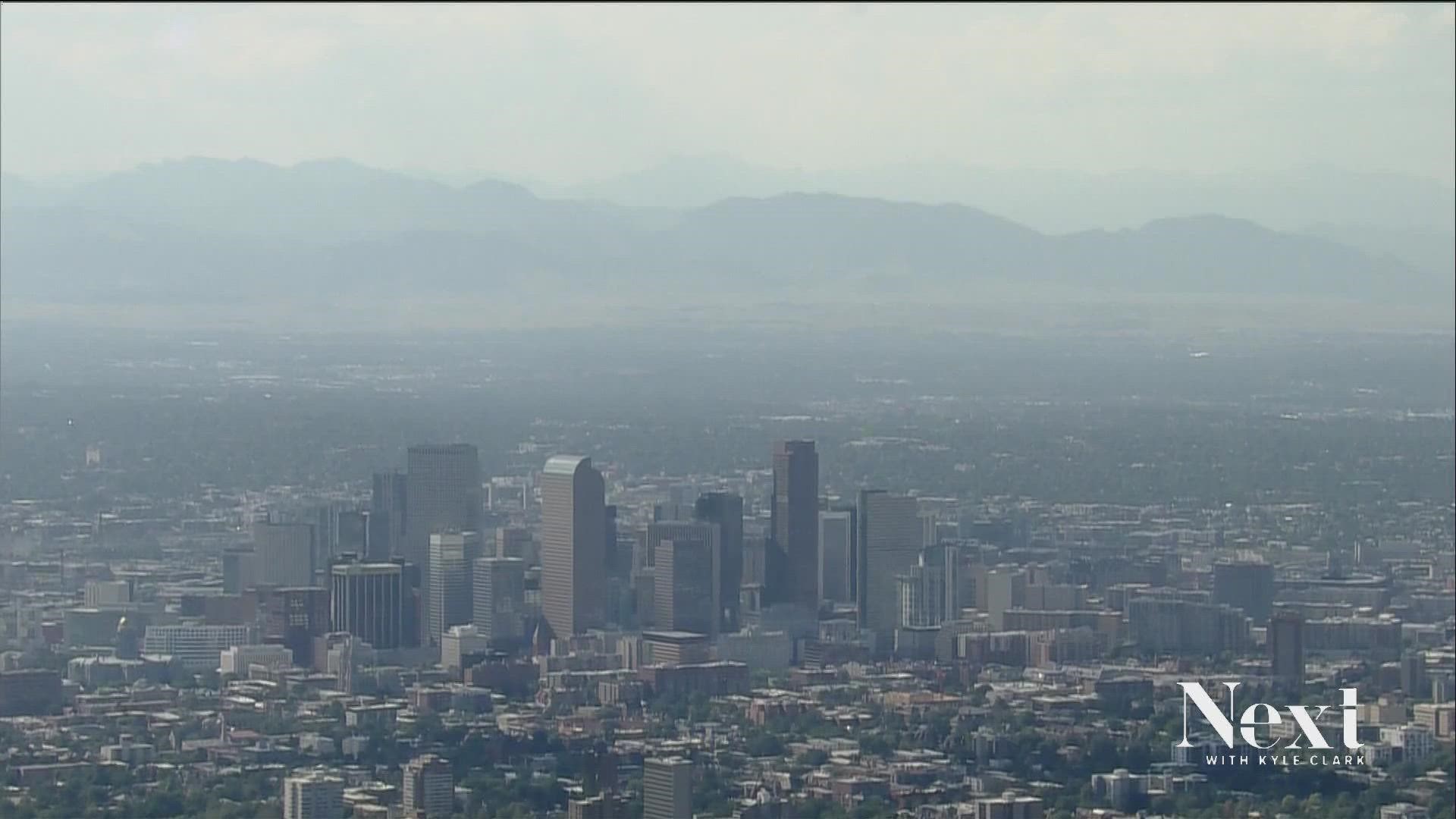DENVER — Thursday, for the 36th time this year, an ozone alert was issued. The lingering haze over Denver was visible, and the alert meant the air quality was so poor, some people needed to rethink being outside.
It also asks people to carpool, fill gas later in the day and mow their lawns later in the day as well.
This begs the question, do individual actions impact air pollution and the frequency of ozone alerts?
Assistant state climatologist Becky Bolinger said yes.
"Ground level ozone is not admitted into our lower atmosphere. It's something created by different particulates we put into the atmosphere. For example, we know more car driving or gas powered things are going to put more of those particulates into the air to create that ozone," she said. "In a day like today, it becomes an extra problem because the air is pretty stable and not moving out. Since it's a pretty short memory particulate, then you know it's very easy to reduce amount of particulates you are putting into the air in that time period."
"If you chose not to drive your car or mow with a gas mower until a later time or things of that nature, then you are going to be putting fewer of those particulates into the air, which will have a more immediate impact," Bolinger added.
There are long-term impacts, too.
Colorado Department of Public Health and Environment helps issue ozone alerts and said long-term impacts include helping those with breathing problems stay safe and protecting plants and ecosystems.
The state said while ozone alerts are issued several times a year, they are looking at a cumulative effect, since they put out alerts for years on end.
"If you can limit one ozone exceedance a year," Dan Welsh with CDPHE said, "That's headed in the right direction towards less days next year that are potentially hazardous to public health."
Welsh said overall ozone levels are headed in the right direction, with variable factors like wildfires.
Individual actions do add up to help. Bolinger hopes it will encourage people to small actions that are sustainable.
"All the little decisions are going to pile up into bigger decisions whether that be replacing to all LED lights, adding solar panels to the top of your house, or maybe a hybrid vehicle or more fuel efficient, one decision you an do long term," she said.
Bolinger also said that lessons learned during the pandemic can make an impact, like the flexibility to work from home during ozone alert days.
Ozone alerts usually last 24 -36 hours depending on the weather.
As for long-term climate change mitigation, the big ticket items to work on include business and building emission, and making environmentally friendly options, like solar panels and HVAC systems, more affordable.

